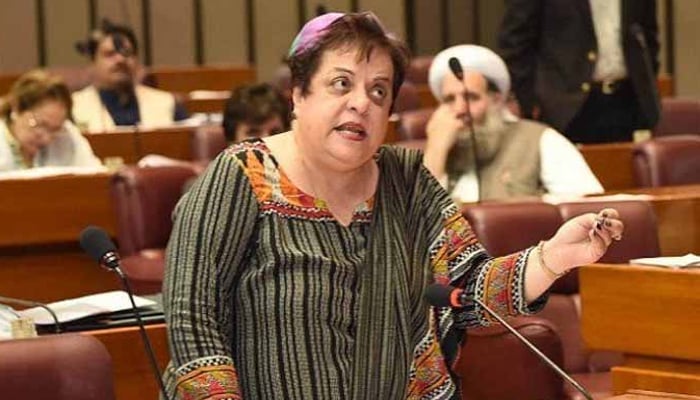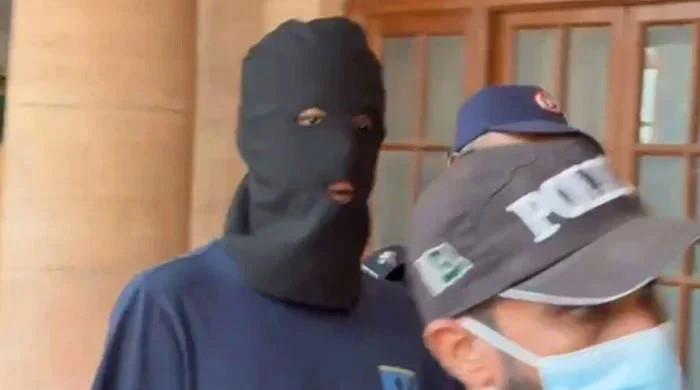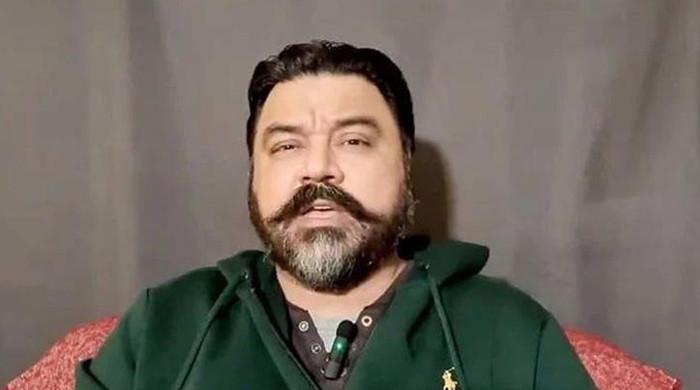Shireen Mazari stresses on 'urgent need' to release sick, under-trial prisoners
Mazari said she had shared ministry's summary with the attorney general and asked him to submit it to the Supreme Court
April 03, 2020

ISLAMABAD: Human Rights Minister Shireen Mazari has said there is an "urgent need" to release sick and under-trial prisoners as the number of coronavirus cases in Pakistan shot to almost 2,500 on Friday.
Stressing on "prison reforms" to bring Pakistan up to international human rights standards, Mazari said Thursday she had shared her ministry's summary on the matter with the attorney general and asked him to submit it to the Supreme Court.
"I have requested the Attorney General to submit the MoHR's legal brief, shared with him earlier today, before the Supreme Court in Criminal Petition No. 299/2020," she said on Twitter.
"Our legal brief provides detailed info on prison conditions & the urgent need to release sick prisoners, prisoners with underlying health conditions, prisoners entitled to bail who fall within the ambit of non-prohibitory clause & under-trial prisoners," she added.
'Crimes have increased'
Earlier this month, CJP Justice Gulzar Ahmad had warned against the release of any prisoners without due process of law amidst the COVID-19 outbreak, asking: "Under what law can suspects and accused be released?”
"The police are already busy with the coronavirus emergency. How can we let criminals be out on the roads as well?” he had asked, claiming that ever since the Sindh High Court issued bail for prisoners, "crimes have increased”.
Despite the attorney general's caution to the court over the spread of the coronavirus in jails, the judges maintained their view.
'Law is present'
"Coronavirus will not go away by emptying the jails. The law is present for taking care of prisoners,” Justice Qazi Faez Isa had remarked, while Justice Sajjad Ali Shah had noted that the law said prisoners affected by COVID-19 should be kept under quarantine.
At the time, Supreme Court Bar Association (SCBA) President Qalb-e-Hasan, who was representing those who have supported the decision to release prisoners, had told the court that 90 newborn babies were also in jail with their mothers.
The top court had on March 30 suspended the orders of all high courts relating to the release of under-trial prisoners amidst the coronavirus outbreak. It had also suspended the implementation of the Islamabad High Court's (IHC) orders in this regard.
Late last month, sources at the interior ministry had told Geo.tv that the Punjab government had decided to let go almost 20,000 of its 46,000 prisoners amid the ongoing COVID-19 coronavirus crisis as jails in Pakistan remain overcrowded.
Bail requests were also filed for prisoners jailed for petty crimes, as well as the elderly, or criminals over 60 years of age, the sources had said. Further, those with sentences ranging from seven years to 25 were being determined on a case-by-case basis.
In addition, bail requests had been submitted for prisoners under trial for less serious crimes.
'Ticking time bombs' prisoners released globally
Similar measures were taken around the world.
Afghanistan on March 26 announced the release of nearly 10,000 prisoners — mostly women, juveniles, and sick people — in an attempt to curb the spread of coronavirus as the number of local cases rose and tens of thousands of Afghans returned from neighbouring Iran — one of the countries hit hardest by the pandemic.
Afghan Attorney General Farid Hamidi had said President Ashraf Ghani's decree was directed at women, young offenders, critically-ill patients, and inmates aged over 55. "The decree is not for those who have committed crimes against national and international security," he cautioned.
Separately, on March 17, US defense lawyers had compared crowded jails to "ticking time bombs” and urged law enforcement officials to release more defendants on bail as they awaited trial — an approach that has already been adopted by San Francisco and Philadelphia.
"Absent extraordinary circumstances, namely cases that involve an imminent threat of violence, it does not advance public safety to add more people to our local jails,” Federal Defenders of New York Director David Patton had said in the letter to federal judges and prosecutors in Manhattan and Brooklyn.
“I truly believe the jails are ticking time bombs,” Patton had said.











